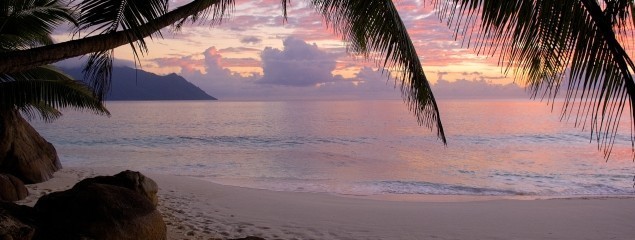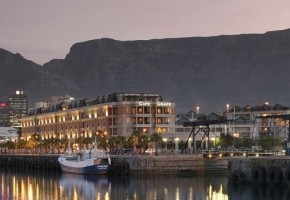Travel to North Island

North Island
North Island is one of the forty inner granite islands of the Seychelles that are located around the two main islands of Mahé and Praslin. With a helicopter transfer taking only 20 minutes, you will find this “Robinson Crusoe” island, a true barefoot paradise.
North Island (or Ile du Nord as it is known locally) comprises of 210 hectares of lush tropical vegetation, coconut palms and takamaka trees and lies cradled between three granitic outcrops. The comprehensive rehabilitation and conservation plan undertaken by Wilderness Safaris and dubbed ‘the Noah’s Ark Project’ has profoundly altered this previously neglected miracle of nature. North Island is quickly returning to the pristine island paradise it once was.
The warm, clear waters surrounding North Island are filled with an abundance of sea life. North Island is an island paradise, a rare sanctuary for those seeking a gorgeous, unspoiled tropical haven that touches the lives of its guests and inspires them long after they leave. It is a Noah’s Ark: a sanctuary where natural habitats are being rehabilitated and where critically endangered Seychelles fauna and flora are being reintroduced. North Island is an example of an ecologically sensitive utilization of a precious natural treasure.
Overview
Seychelles is one of the last true sanctuaries on the planet where people can still live healthily and in harmony with nature, benefiting from a carefree, island-style way of life and enjoying the space to breathe pure air and roam free.
People
About 90% of the Seychellois live on Mahe Island. Most others live on Praslin and La Digue, with the remaining smaller islands either sparsely populated or uninhabited.
Most Seychellois are descendants of early French settlers and the African slaves brought to the Seychelles in the 19th century by the British, who freed them from slave ships on the East African coast. Indians and Chinese (1.1% of the population) account for the other permanent inhabitants. In 2006, about 4,000 expatriates lived and worked in Seychelles. Of those, about 65 were American.
Seychelles culture is a mixture of French and African (Creole) influences. Creole is the native language of 94% of the people; however, English and French are commonly used. English remains the language of government and commerce.
Language
Seychelles has three official languages: Creole, English and French.
History
Seychelles is a comparatively young nation which can trace its first settlement back to 1770 when the islands were first settled by the French, leading a small party of whites, Indians and Africans. The islands remained in French hands until the defeat of Napoleon at Waterloo, evolving from humble beginnings to attain a population of 3,500 by the time Seychelles was ceded to Britain under the treaty of Paris in 1814.
During this period Seychelles came to know the enlightened policies of administrators such as Pierre Poivre, the brilliant politicking of Governor Queau de Quinssy and, of course, the terrible repercussions of the French Revolution.
Under the British, Seychelles achieved a population of some 7,000 by the year 1825. Important estates were established during this time producing coconut, food crops, cotton and sugar cane. During this period Seychelles also saw the establishment of Victoria as her capital, the exile of numerous and colourful troublemakers from the Empire, the devastation caused by the famous Avalanche of 1862 and the economic repercussions of the abolition of slavery.
Seychelles achieved independence from Britain in 1976 and became a republic within the commonwealth. Following a period of single party rule by the government of Mr. France Albert René, on December 4, 1991, President René announced a return to the multiparty system of government, 1993 saw the first multiparty presidential and legislative elections held under a new constitution in which President René was victorious. President René also won the 1998 and 2003 elections before transferring the Presidency to James Alix Michel in June 2004.
Travel Guide
Currency
The local currency is the Seychelles Rupee (SCR), made up of 100 cents. Notes come in denominations of SCR10, 25, 50 and 100 and coins from SCR5 and 1, and 5, 10 and 25 cents. Travelers’ checks and foreign currencies can be changed at banks or hotels.
Weather
The islands enjoy a pleasant tropical climate year-round and, as they are situated outside the cyclone belt, there are no extremes of weather. The temperature seldom drops below 24 degrees or rises above 33 degree Celsius. Globally changing climatic conditions make it difficult to predict exact weather patterns. From October to March the islands are affected by the north-west trade winds. This is when the sea is generally calm with warm tropical water. From May to September, the weather is generally drier and cooler, with choppy seas, particularly on the south-eastern coast, which is when the south-east trade winds occur. The wettest months are December and January.
Health Requirements
Please consult with your local doctor.
Visa Requirements
A valid passport, onward/return ticket, the local address where the visitor will stay, and proof of sufficient funds are required. A one-month entry visa may be obtained upon arrival and may be extended for a period of up to one year.
Credit Cards
MasterCard / Access and Visa cards are widely accepted while Diners Club and American Express cards are honored to a somewhat lesser extent. Such cards may be used for car hire, hotel and restaurant services, for all of which the visitor will be charged in foreign currency. Shops and boutiques accepting credit cards will typically display the relevant card logo on their doors or windows.
Electrical Appliances
Throughout Seychelles the voltage is 220-240 volts AC 50 Hz. Seychelles uses the British standard square three-pin, 13 amp sharp electric plug.
Water
Tap water meets W.H.O. (World Health Organization) specifications and is safe to drink nation-wide. Because tap water is chlorinated, visitors are advised to drink bottled water but there is no imperative to avoid soft drinks, alcoholic drinks and ice.
Map
A: Denis Island
B: Desroches Island
C: La Digue
D: Mahé
E: North Island
F: Praslin
G: Seychelles
H: Silhouette Island
Destinations
Explore the rest of our Seychelles destinations:
Brochure
Build your own custom brochure
Finally, information the way you want it, when you want. Create your own customized information brochure from anything on our site with this magical tool called a brochure builder. Add destination information, hotels, resort and lodges and even vacations that you are interested in. Simply find a product you are interested in, and click to add to your brochure.
Once you have finalized your selection, press select and your own customized brochure will be created, filled with all sorts of hints and tips to get you started. What a great way to get your friends and family interested in a trip, or perhaps to surprise your husband or wife with, or even to just have a memory of your own vacation?
The selection on this website is just a small showcase of the offerings available, ask the travel experts for more details. We're here to inspire!








Follow Us